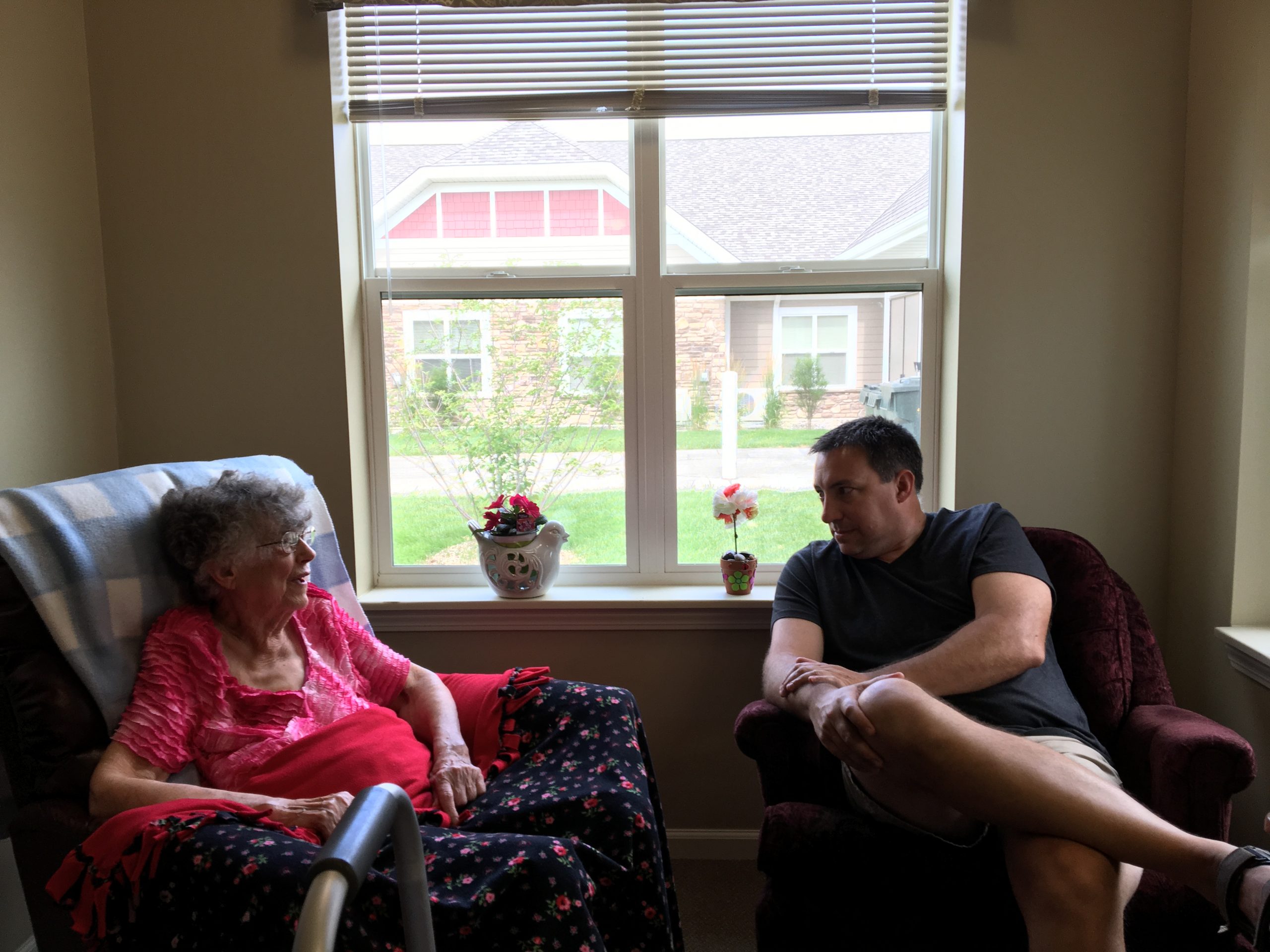One of the most influential people in my life was my grandma. She was always there for me growing up. She always had an ice0cold Mountain Dew in her refrigerator for me and constantly knew what snack I liked. She would listen to me when I was frustrated. She would create a safe atmosphere no matter what kind of mood I was in. My brother and I spent countless nights at her house and spent many summer days going on adventures in the country. One of the things that I admired most about her was that she was always positive. As I grew up and heard more of her story, her positive attitude impacted me even more. The person I never got to meet was her husband, my grandfather. Four years before I was born, my grandfather was diagnosed with colon cancer. By the time he was diagnosed, the cancer had spread throughout his abdomen and there was little that the doctors could do to help him. Cancer had started in his colon and untreated had spread throughout his body and finally led him to be in extreme pain and quickly led him to struggle to function. My grandma was left alone running a farm, with a high school freshman and senior, and my dad who had just joined the National Guard and at any point could be sent to Vietnam. Through all of this my grandma only had good memories, but would always talk about the darkness and pain of cancer and the effects that it has on people.
I believe that conflict can be a cancer in any organization. Conflict most of the time exists below the surface for a period of time, silently growing in sarcasm and doubt, unintentionally attracting other conflict and disunity, gathering momentum and influence, until the symptoms begin to surface. I have been in many organizations where everything looked like it was going well, and then out of nowhere, an explosion of frustration and disagreement erupted. I have seen good relationships turn into enemies overnight. I have seen seemingly healthy organizations go from success to survival in a matter of weeks. Many of the causes of these sudden changes were the result of conflict that was left unresolved, uncommunicated, and uncontrolled.
Conflict left unchecked will infiltrate all relationships, all teams, all organizations. I have learned one the most important parts of controlling the cancer of conflict is to constantly screen for it. Screening for conflict in a relationship or organization is rarely easy, convenient or fun. It will require commitment, intentionality, and risk, but it is worth it, no I believe it is required for anyone in leadership. Just like my colonoscopy that I must do every 3-5 years for the rest of my life, conflict screening is not something most people look forward to, but it will help prevent the development of the cancer that has destroyed so many relationships, leadership partnerships and organizations.
I have learned to lean into conflict early and often. Reach out with love, but with a determination to leave nothing unresolved. My experience is that if you can remove conflict as soon as possible, it will more than likely be replaced with love, trust, and commitment. Addressing conflict can be risky, because it could mean you find out that key teammates are not on the same page or that the organization/ministry you are a part of is not heading in the same direction that you thought it was. You may even find out that you were wrong. Addressing conflict can also result in the reality that you may not be teamed up with people that want to address conflict in a healthy way. But, I will continue to encourage you to believe that as the cancer of conflict is eliminated from your relationships, teams, ministries, you will find a stronger health, a fuller purpose, a deeper sense of teamwork. Continue to believe that the fight against conflict is worth the energy, the sacrifice, and the risk.

